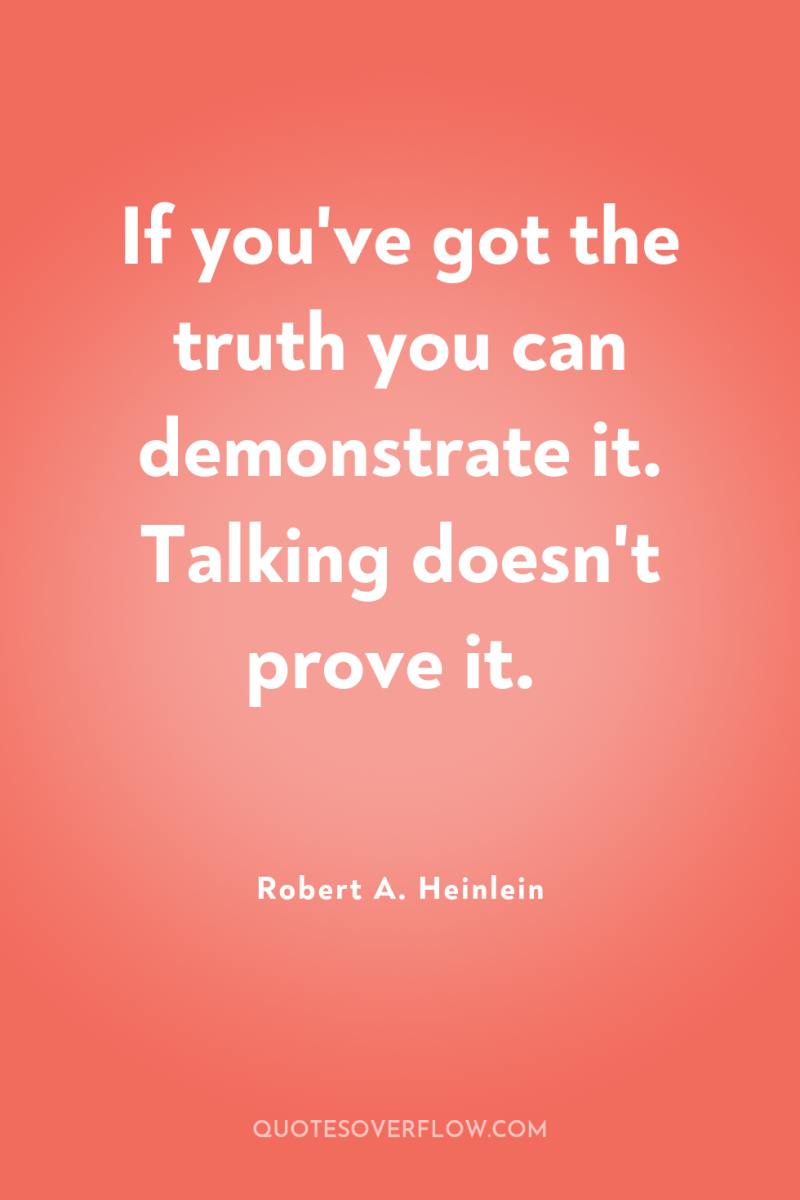
If you've got the truth you can demonstrate it. Talking doesn't prove it.Robert A. Heinlein
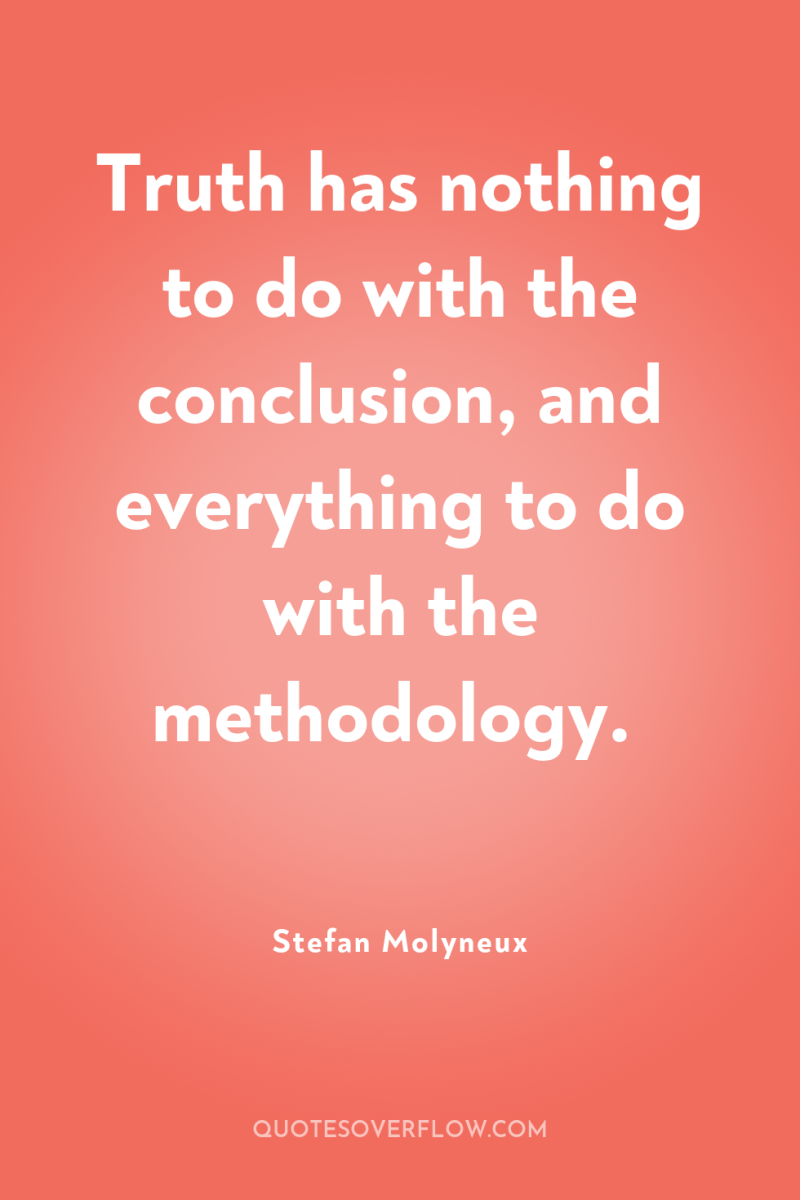
Truth has nothing to do with the conclusion, and everything to do with the methodology.Stefan Molyneux
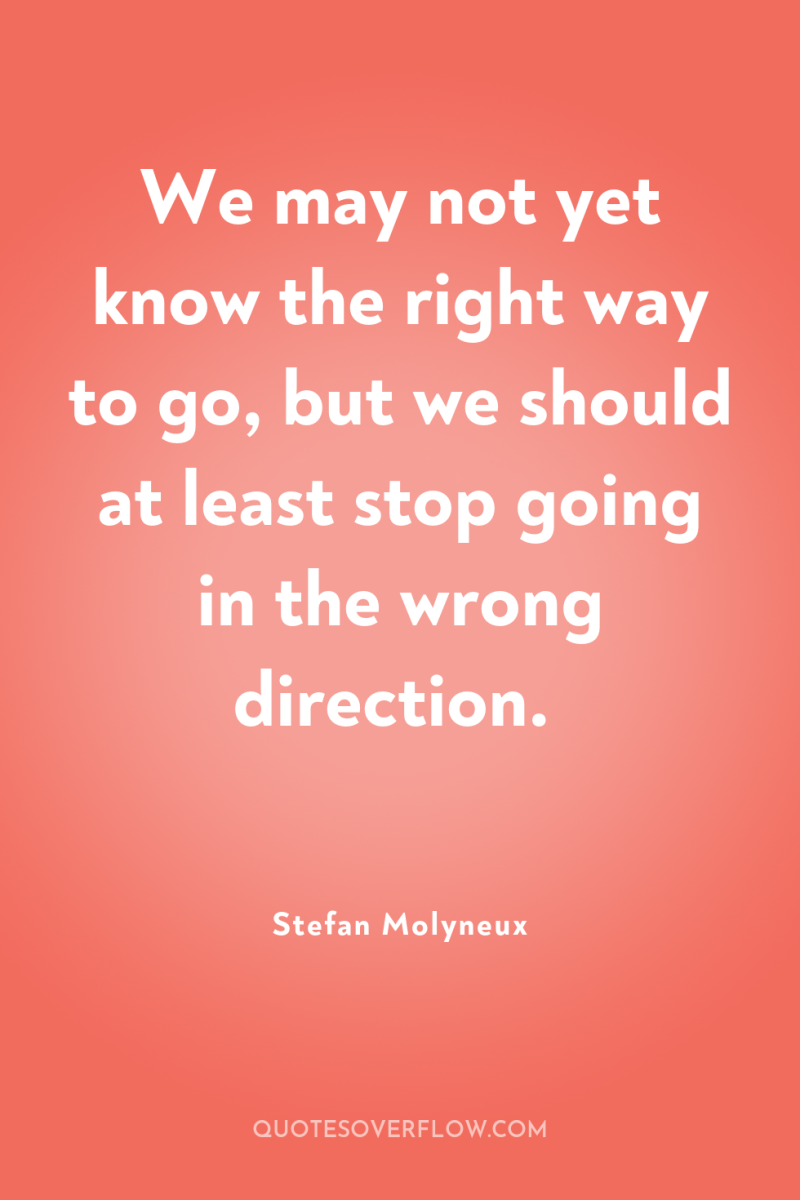
We may not yet know the right way to go, but we should at least stop going in the wrong direction.Stefan Molyneux
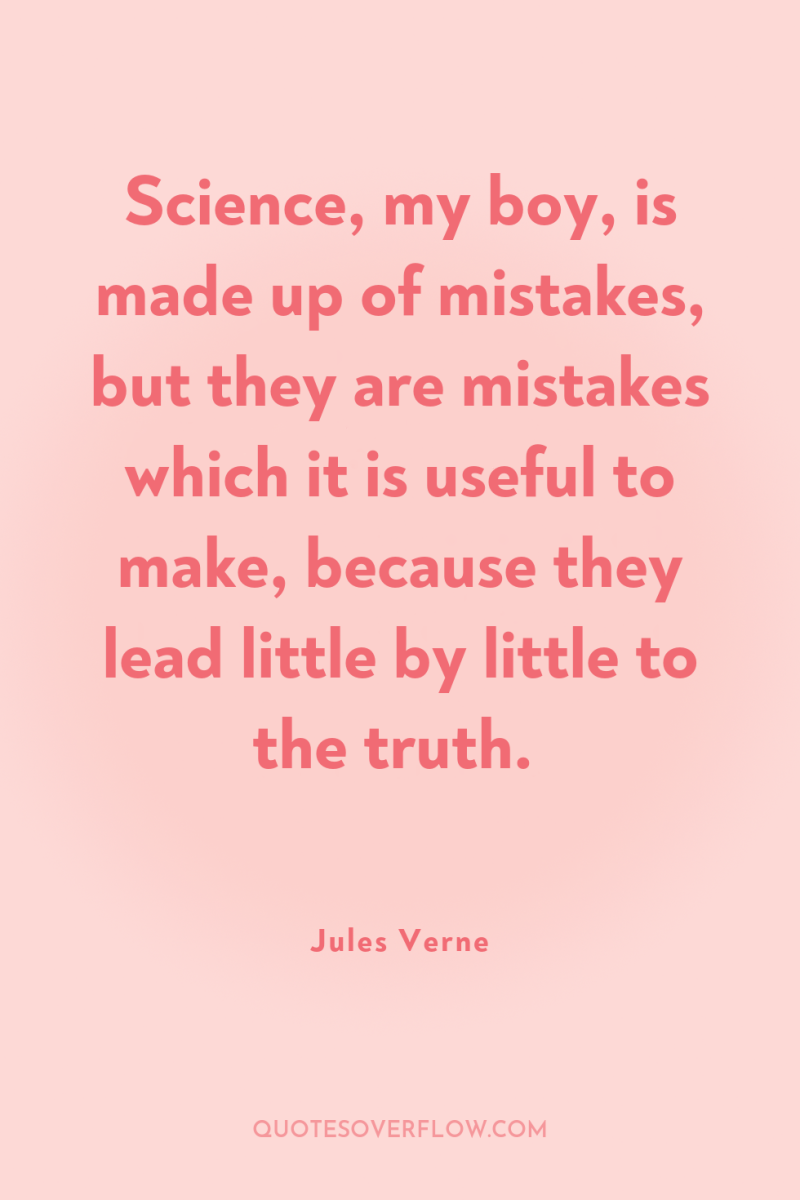
Science, my boy, is made up of mistakes, but they are mistakes which it is useful to make, because they lead little by little to the truth.Jules Verne
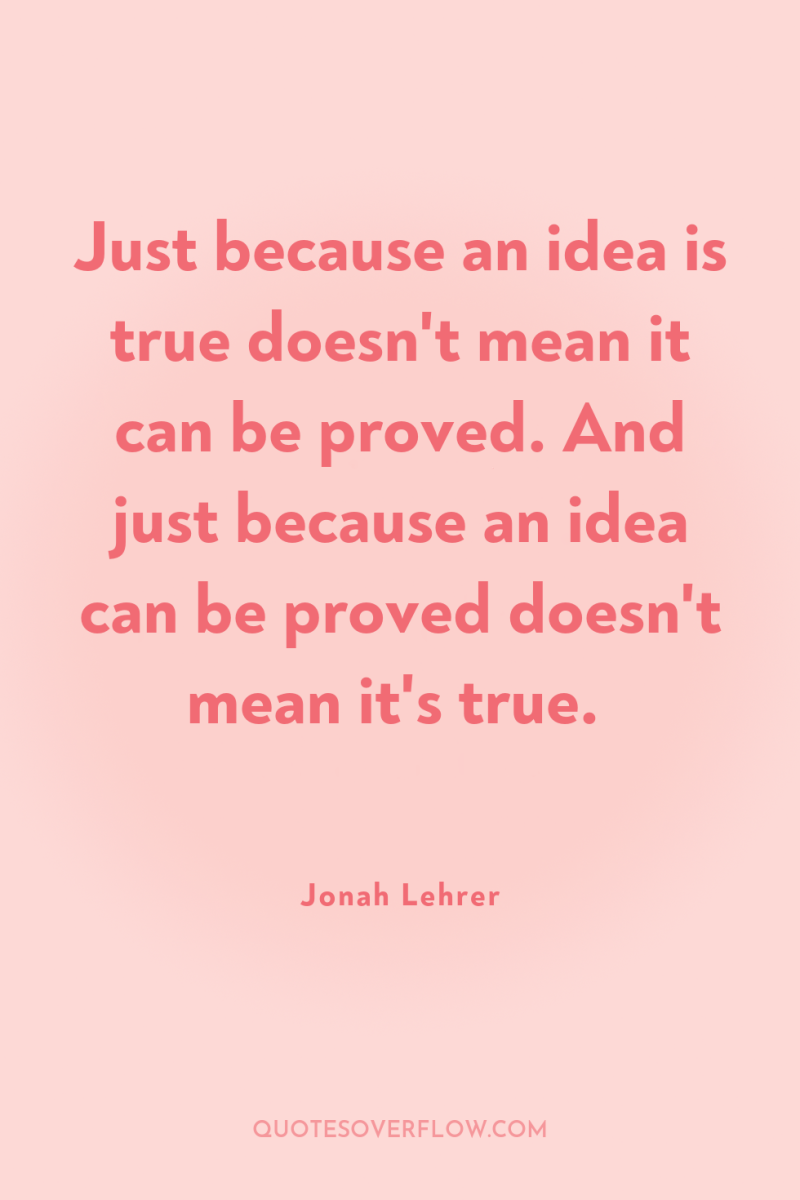
Just because an idea is true doesn't mean it can be proved. And just because an idea can be proved doesn't mean it's true.Jonah Lehrer
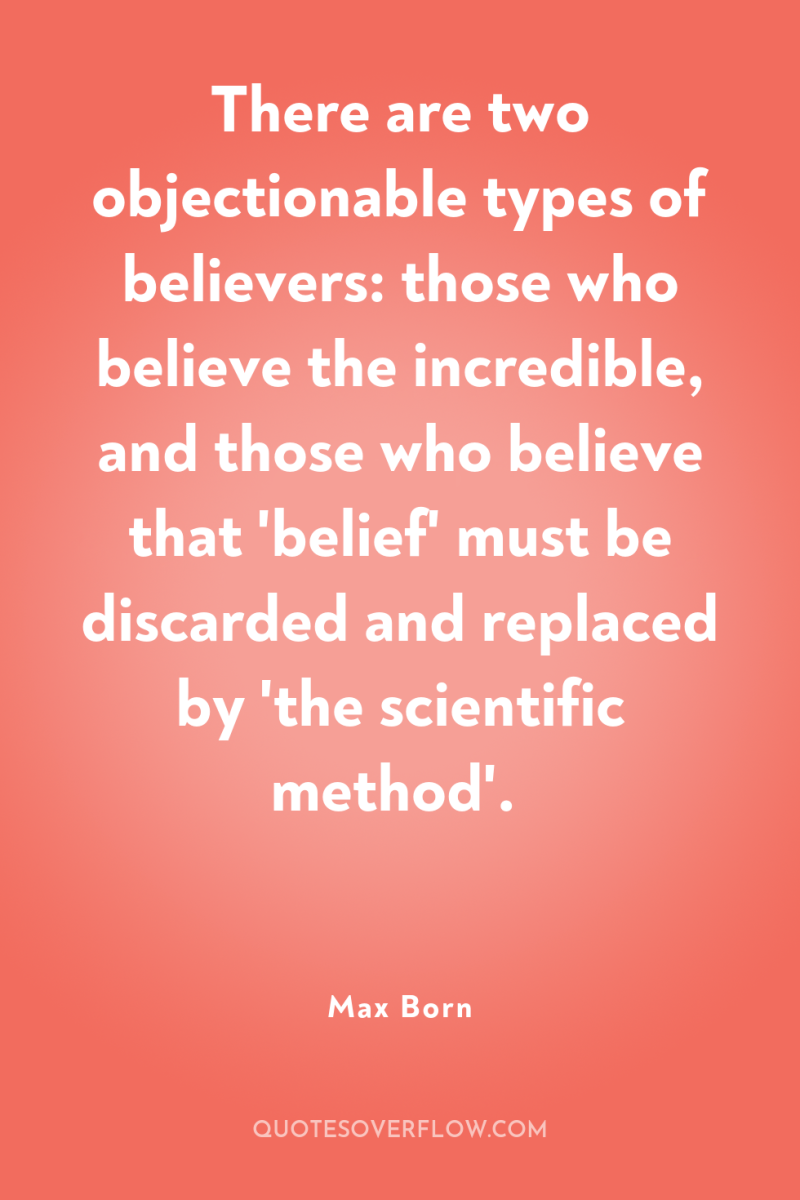
There are two objectionable types of believers: those who believe the incredible, and those who believe that 'belief' must be discarded and replaced by 'the scientific method'.Max Born
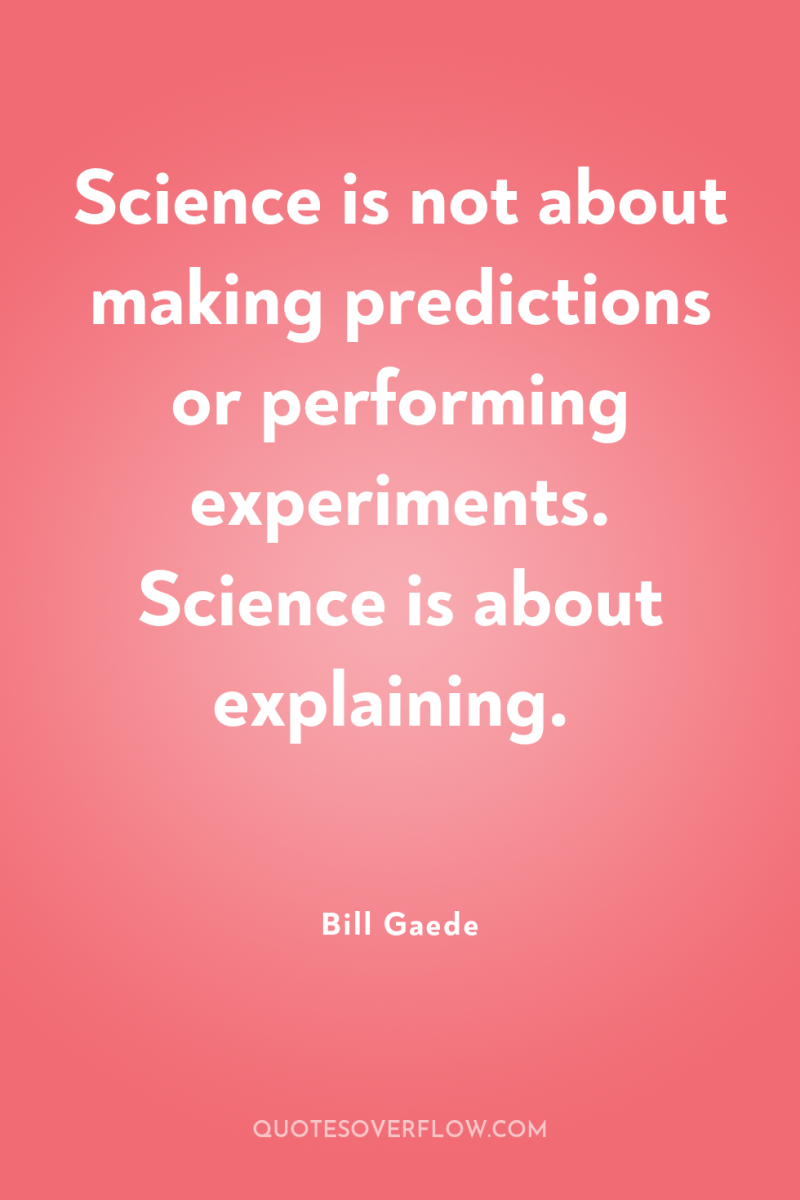
Science is not about making predictions or performing experiments. Science is about explaining.Bill Gaede
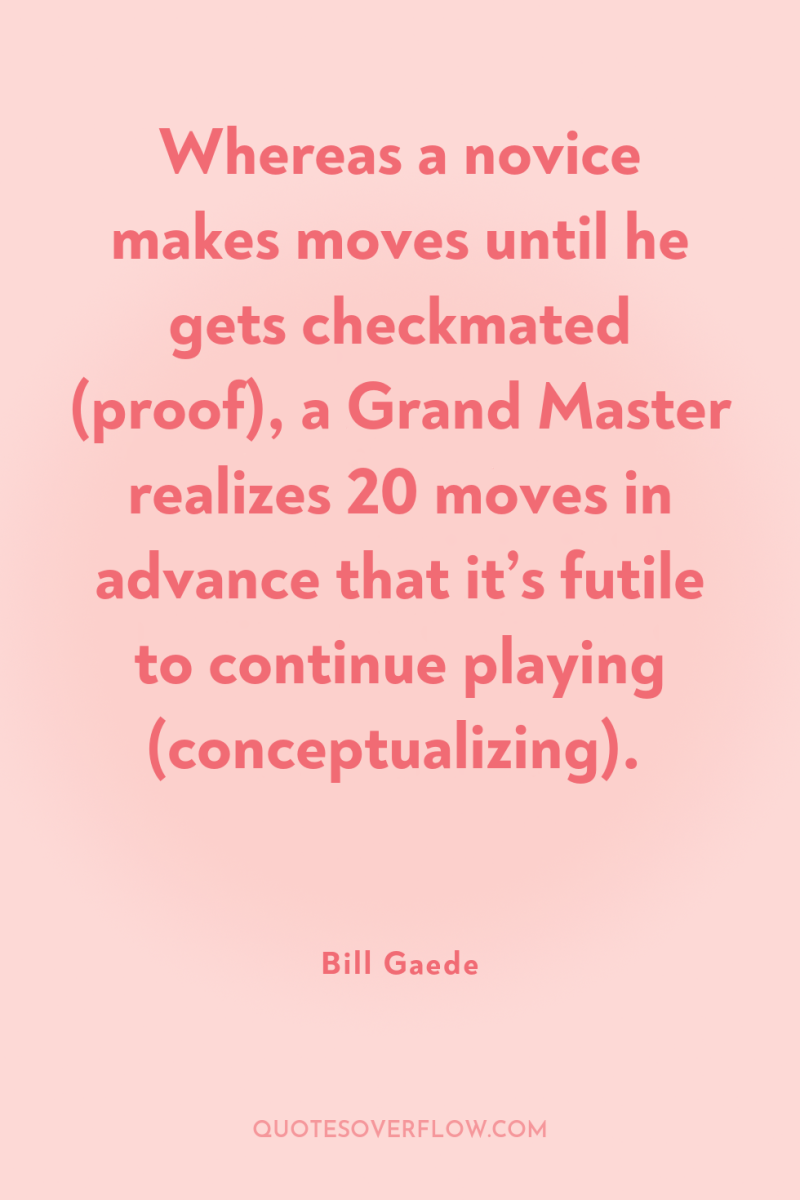
Whereas a novice makes moves until he gets checkmated (proof), a Grand Master realizes 20 moves in advance that it’s futile to continue playing (conceptualizing).Bill Gaede
To satisfy our doubts . it is necessary that a method should be found by which our beliefs may be determined by nothing human, but by some external permanency -- by something upon which our thinking has no effect. Our external permanency would not be external, in our sense, if it was restricted in its influence to one individual. It must be something which affects, or might affect, every man. And, though these affections are necessarily as various as are individual conditions, yet the method must be such that the ultimate conclusion of every man shall be the same. Such is the method of science. Its fundamental hypothesis, restated in more familiar language, is this: There are Real things, whose characters are entirely independent of our opinions about them; those Reals affect our senses according to regular laws, and, though our sensations are as different as are our relations to the objects, yet, by taking advantage of the laws of perception, we can ascertain by reasoning how things really and truly are; and any man, if he have sufficient experience and he reason enough about it, will be led to the one True conclusion. The new conception here involved is that of Reality. .Charles Sanders Peirce
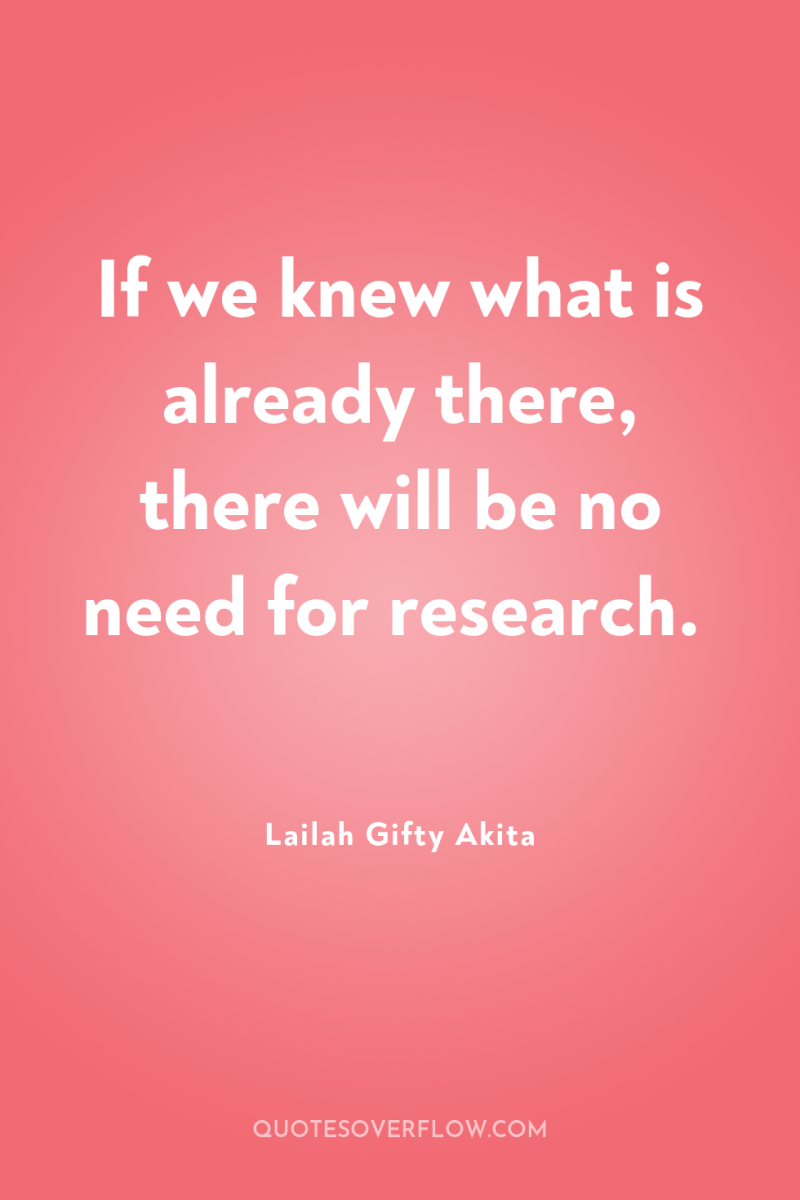
If we knew what is already there, there will be no need for research.Lailah Gifty Akita
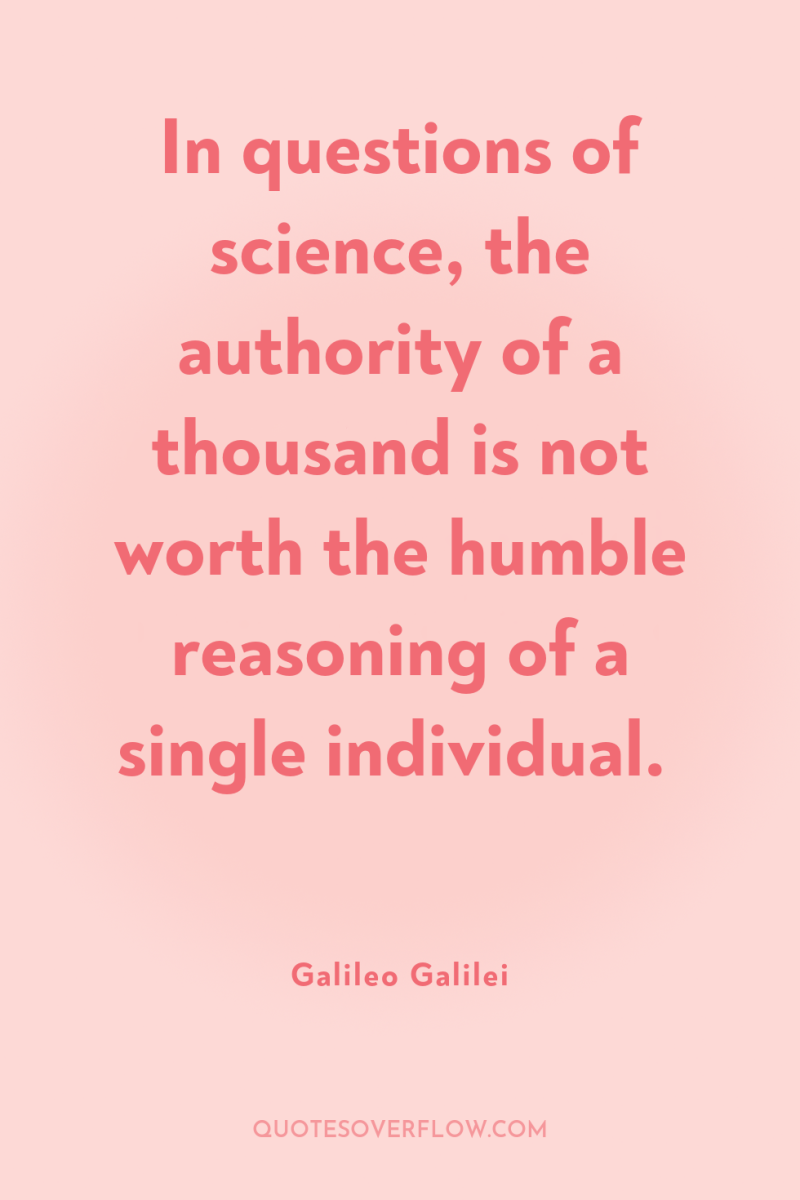
In questions of science, the authority of a thousand is not worth the humble reasoning of a single individual.Galileo Galilei
So my antagonist said, "Is it impossible that there are flying saucers? Can you prove that it's impossible?" "No", I said, "I can't prove it's impossible. It's just very unlikely". At that he said, "You are very unscientific. If you can't prove it impossible then how can you say that it's unlikely?" But that is the way that is scientific. It is scientific only to say what is more likely and what less likely, and not to be proving all the time the possible and impossible.Richard Feynman
I want to pause here and talk about this notion of consensus, and the rise of what has been called consensus science. I regard consensus science as an extremely pernicious development that ought to be stopped cold in its tracks. Historically, the claim of consensus has been the first refuge of scoundrels; it is a way to avoid debate by claiming that the matter is already settled. Whenever you hear the consensus of scientists agrees on something or other, reach for your wallet, because you're being had. Let's be clear: the work of science has nothing whatever to do with consensus. Consensus is the business of politics. Science, on the contrary, requires only one investigator who happens to be right, which means that he or she has results that are verifiable by reference to the real world. In science consensus is irrelevant. What is relevant is reproducible results. The greatest scientists in history are great precisely because they broke with the consensus. There is no such thing as consensus science. If it's consensus, it isn't science. If it's science, it isn't consensus. Period.Michael Crichton
The TV scientist who mutters sadly, "The experiment is a failure; we have failed to achieve what we had hoped for, " is suffering mainly from a bad script writer. An experiment is never a failure solely because it fails to achieve predicted results. An experiment is a failure only when it also fails adequately to test the hypothesis in question, when the data it produces don't prove anything one way or another.Robert M. Pirsig
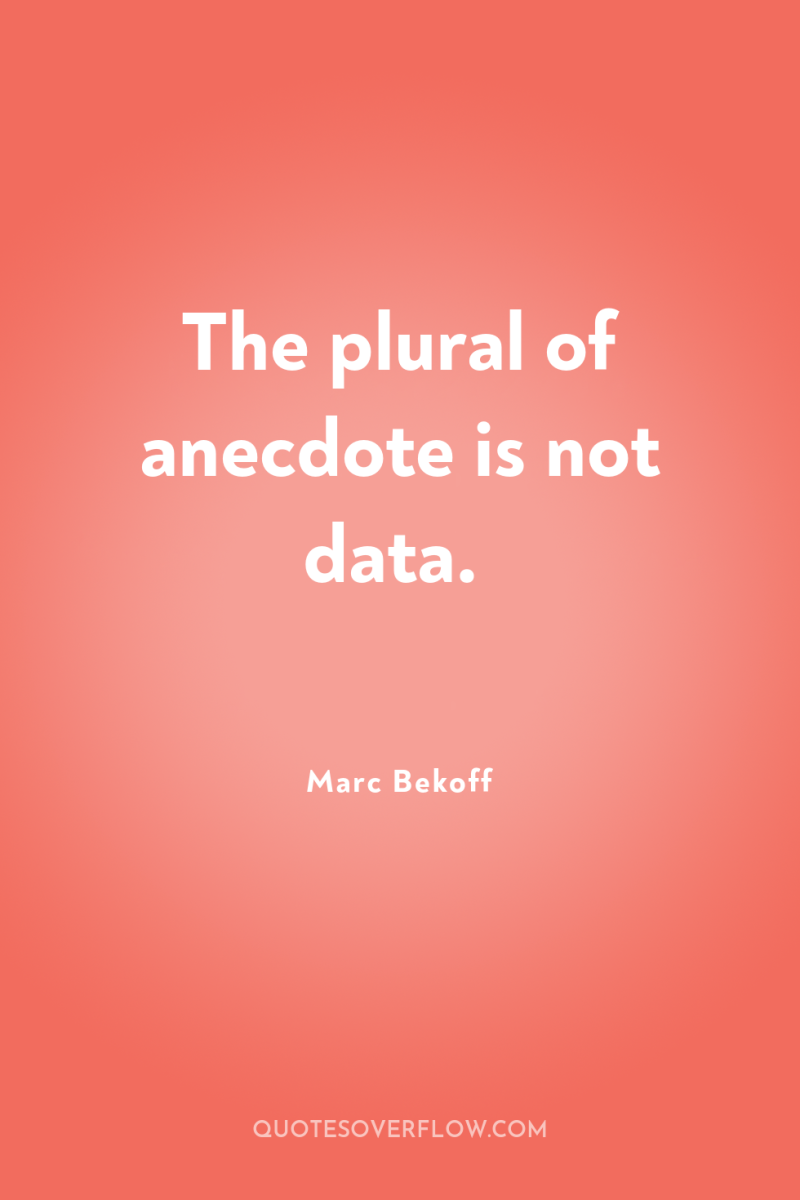
The plural of anecdote is not data.Marc Bekoff
I would remind you to notice where the claim of consensus is invoked. Consensus is invoked only in situations where the science is not solid enough. Nobody says the consensus of scientists agrees that E=mc2. Nobody says the consensus is that the sun is 93 million miles away. It would never occur to anyone to speak that way.Michael Crichton
![The whole [scientific] process resembles biological evolution. A problem is...](https://cdn.quotesoverflow.com/file/quotesoverflow/images/the-whole-scientific-process-resembles-biological338418555632-1200.webp)
The whole [scientific] process resembles biological evolution. A problem is like an ecological niche, and a theory is like a gene or a species which is being tested for viability in that niche.David Deutsch
Things that look like they were designed, probably were.. If intelligence is an operative component of the universe, a science that methodologically excludes its existence will be susceptible to being trapped in an endless chase for materialistic causes that do not exist.. Where there are sufficient grounds for inferring intelligent causation, based on evidence of "specified complexity, " it should be considered as a component of scientific theories. Inclusion of intelligent causation in the scientific equation is not novel and has not impeded the practice of science in the past, e.g. Newton and Kepler, in an age when science was not constrained by a philosophical materialism, and by many current scientists who have remained open to following the evidence where it leads.Donald L. Ewert
For God to prove himself on demand, physically, would be a grave disappointment, and the strongest Christians should be considerably grateful that he chooses not to do so. The skeptic endlessly demands proof, yet God refuses to insult the true intelligence of man, the '6th sense', the chief quality, the acumen which distinguishes man from the rest of creation, faith.Criss Jami
Monotheism generally allows for no greys. Ideas are either true or false. Hence, although science develops out of the alchemy of the medieval Christian milieu (derived from Arabic alchemy, which was stimulated by the much earlier Chinese alchemy), science is not understood by the nonscientific monotheistic population. The general Western public mistakenly thinks science presents unalterable truth, as does their religion, rather than theories to be tested and continually discarded to be replaced by new hypotheses, which is the actual scientific method. .Jordan D. Paper
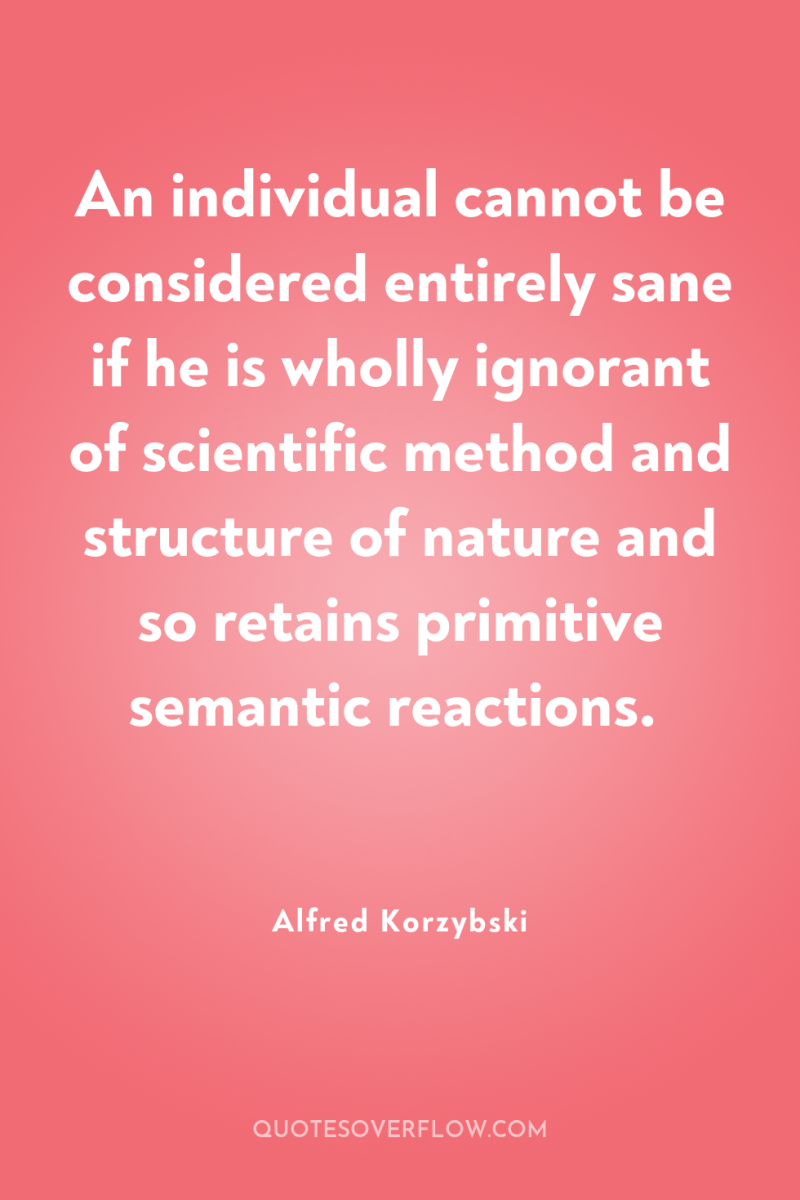
An individual cannot be considered entirely sane if he is wholly ignorant of scientific method and structure of nature and so retains primitive semantic reactions.Alfred Korzybski
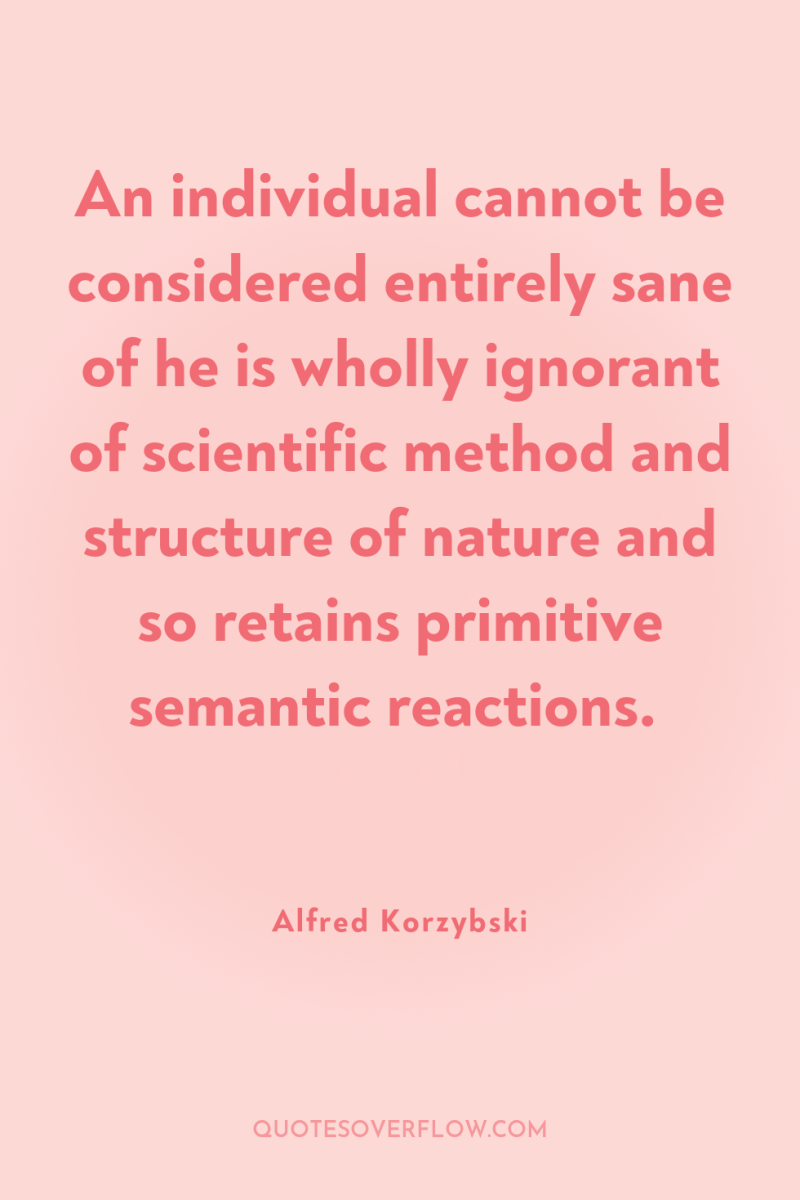
An individual cannot be considered entirely sane of he is wholly ignorant of scientific method and structure of nature and so retains primitive semantic reactions.Alfred Korzybski
.. . the abandonment of metaphysics involves more than the redefinition of the nature of rational inquiry in accordance with the tenets of modern scientific methodology this redefinition itself makes matters of value and validity mere matters of opinion.Alan White
Science proceeds by inference, rather than by the deduction of mathematical proof. A series of observations is accumulated, forcing the deeper question: What must be true if we are to explain what is observed? What "big picture" of reality offers the best fit to what is actually observed in our experience? American scientist and philosopher Charles S. Peirce used the term "abduction" to refer to the way in which scientists generate theories that might offer the best explanation of things. The method is now more often referred to as "inference to the best explanation." It is now widely agreed to be the philosophy of investigation of the world characteristic of the natural sciences. .Alister E. McGrath
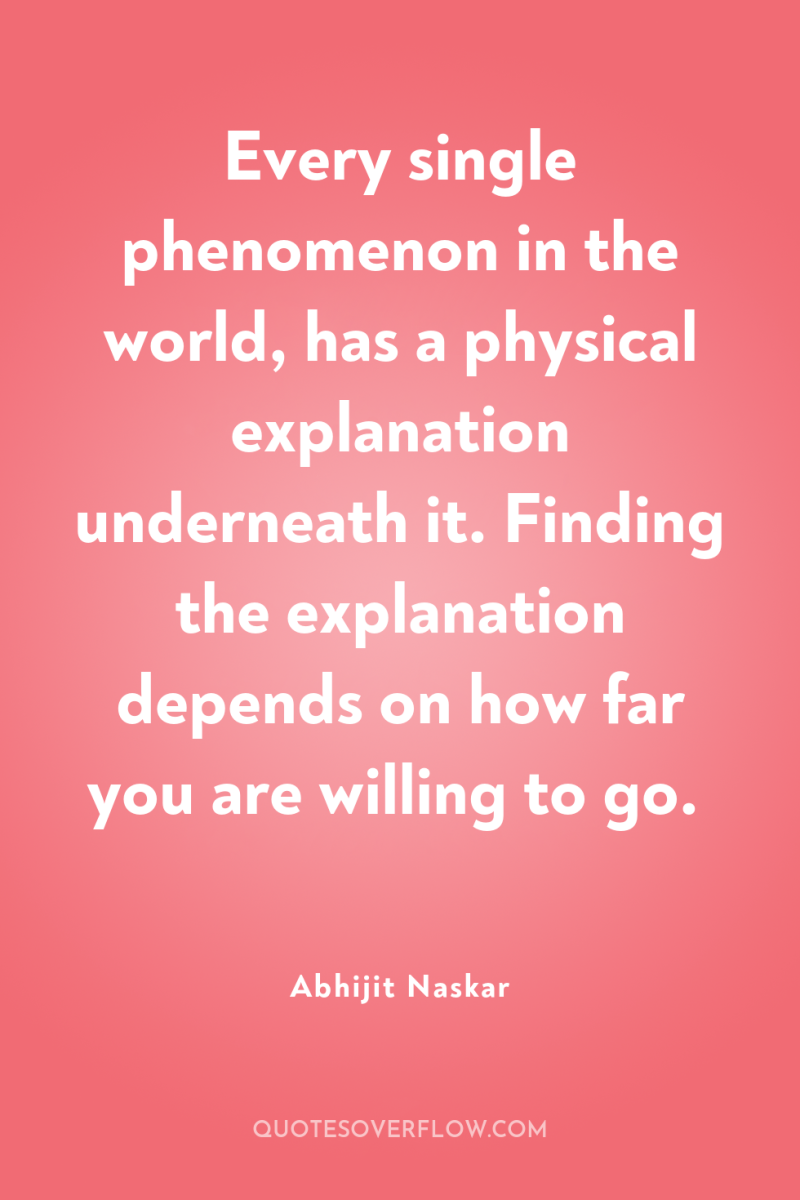
Every single phenomenon in the world, has a physical explanation underneath it. Finding the explanation depends on how far you are willing to go.Abhijit Naskar
The scientific method entails two assumptions that are so basic that, even if you spell them out, they are still difficult to keep in mind. First: that the observer stays the same while the world changes. Second: that cause precedes effect. But the very nature of the experiment we are conducting means that the second of these assumptions is thrown into doubt. We are deliberately attempting to engineer an event in which effect chronologically precedes cause. If one of these assumptions is under threat, why not the other? .Dexter Palmer
One of the difficulties in raising public concern over the very severe threats of global warming is that 40 percent of the US population does not see why it is a problem, since Christ is returning in a few decades. About the same percentage believe that the world was created a few thousand years ago. If science conflicts with the Bible, so much the worse for science. It would be hard to find an analogue in other societies. .Noam Chomsky
... Weber insists that the value of science is always to be questioned and not simply presupposed... He is... critical of the presupposition which underlies Strauss' position, namely that scientific reason is necessarily of value.Nicholas Gane
Like all great things which then become fashions, science, as now the universal stamp of approval, probably receives more abuse than any other field of study. Glaze the word itself over whatever vague ideology one may presume ratified, no matter the degree of pseudo-science or lack of scholarly credibility packaged within, and the many will consume it like gravy on a feast. My thought for the time is that as the promise of true science increases, so shall rise its many more superficial counterparts as provided by the agenda-bound trendies and hyper-ambitious laypersons to boot.Criss Jami
Mister Geoffrey, my experiment shows that the dynamo and the bulb are both working properly, " I said. "So why won't the radio play?"" I don't know, " he said. "Try connecting them here." He was pointing toward a socket on the radio labeled "AC, " and when I shoved the wires inside, the radio came to life. We shouted with excitement. As I pedaled the bicycle, I could hear the great Billy Kaunda playing his happy music on Radio Two, and that made Geoffrey start to dance." Keep pedaling, " he said. "That's it, just keep pedaling."" Hey, I want to dance, too."" You'll have to wait your turn." Without realizing it, I'd just discovered the difference between alternating and direct current. Of course, I wouldn't know what this meant until much later. After a few minutes of pedaling this upside-down bike by hand, my arm grew tired and the radio slowly died. So I began thinking, "What can do the pedaling for us so Geoffrey and I can dance? .William Kamkwamba
Facts do not fall in the face of discomfort.Stefan Molyneux
Science has an unfortunate habit of discovering information politicians don't want to hear, largely because it has some bearing on reality.Stephen L. Burns
We must trust to nothing but facts: These are presented to us by Nature, and cannot deceive. We ought, in every instance, to submit our reasoning to the test of experiment, and never to search for truth but by the natural road of experiment and observation.Antoine Lavoisier
Never question the conviction of a scientist, based on mere scriptures.Abhijit Naskar
But in introducing me simultaneously to skepticism and to wonder, they taught me the two uneasily cohabiting modes of thought that are central to the scientific method.Carl Sagan
Nevertheless, scientific method is not the same as the scientific spirit. The scientific spirit does not rest content with applying that which is already known, but is a restless spirit, ever pressing forward towards the regions of the unknown, and endeavouring to lay under contribution for the special purpose in hand the knowledge acquired in all portions of the wide field of exact science. Lastly, it acts as a check, as well as a stimulus, sifting the value of the evidence, and rejecting that which is worthless, and restraining too eager flights of the imagination and too hasty conclusions.Archibald E. Garrod
I was testing a hypothesis. But it was right, and then I had a unicorn to deal with. You can't just say, 'Thank you so much, go away now' to a unicorn, the way you can with atomic particles.Pamela Dean
The Use of the Understanding, in endeavouring to find out the Meaning of any Proposition whatsoever, in considering the nature and Evidence for or against it, and in judging of it according to the seeming Force or Weakness of the Evidence.Anthony Collins
The Scientific Method is a wonderful tool as long as you don't care which way the outcome turns; however, this process fails the second one's perception interferes with the interpretation of data. This is why I don’t take anything in life as an absolute…even if someone can “prove” it “scientifically.Cristina Marrero
Science Fiction is a safe, fertile arena in which to rehearse the potential scientific facts of tomorrowStewart Stafford
Atheism may be defined as the mental attitude which unreservedly accepts the supremacy of reason and aims at establishing a lifestyle and ethical outlook verifiable by experience and the scientific method, independent of all arbitrary assumptions of authority and creeds.Madalyn Murray OHair
The fundamental characteristic of the scientific method is honesty. In dealing with any question, science asks no favors.. I believe that constant use of the scientific method must in the end leave its impress upon him who uses it.. A life spent in accordance with scientific teachings would be of a high order. It would practically conform to the teachings of the highest types of religion. The motives would be different, but so far as conduct is concerned the results would be practically identical.Ira Remsen
Scientists are human–they're as biased as any other group. But they do have one great advantage in that science is a self-correcting process.Cyril Ponnamperuma
The disruption of science is one which abandons the method and seeks to conquer grounds outside its territory. It is not at all religion but this pseudo-science that is the enemy of science.Criss Jami
With increasing distance, our knowledge fades, and fades rapidly. Eventually, we reach the dim boundary–the utmost limits of our telescopes. There, we measure shadows, and we search among ghostly errors of measurement for landmarks that are scarcely more substantial. The search will continue. Not until the empirical resources are exhausted, need we pass on to the dreamy realms of speculation.Edwin Powell Hubble
Yes, I'm a materialist. I'm willing to be shown wrong, but that has not happened – yet. And I admit that the reason I'm unable to accept the claims of psychic, occult, and/or supernatural wonders is because I'm locked into a world-view that demands evidence rather than blind faith, a view that insists upon the replication of all experiments – particularly those that appear to show violations of a rational world – and a view which requires open examination of the methods used to carry out those experiments.James Randi
Actually I've never seen a cycle-maintenance problem complex enough really to require full-scale formal scientific method. Repair problems are not that hard. When I think of formal scientific method an image sometimes comes to mind of an enormous juggernaut, a huge bulldozer-slow, tedious, lumbering, laborious, but invincible. It takes twice as long, five times as long, maybe a dozen times as long as informal mechanic's techniques, but you know in the end you're going to get it. There's no fault isolation problem in motorcycle maintenance that can stand up to it. When you've hit a really tough one, tried everything, racked your brain and nothing works, and you know that this time Nature has really decided to be difficult, you say, "Okay, Nature, that's the end of the nice guy, " and you crank up the formal scientific method.Robert M. Pirsig
Think of how many religions attempt to validate themselves with prophecy. Think of how many people rely on these prophecies, however vague, however unfulfilled, to support or prop up their beliefs. Yet has there ever been a religion with the prophetic accuracy and reliability of science? ... No other human institution comes close.Carl Sagan
We must conduct research and then accept the results. If they don't stand up to experimentation, Buddha's own words must be rejected.Dalai Lama Xiv
While science can be many things, above all it is a way for our mistake-making, illusion-prone, storytelling brains to compare different methods for describing nature.Mike McRae
The scientist has a lot of experience with ignorance and doubt and uncertainty, and this experience is of very great importance, I think. When a scientist doesn’t know the answer to a problem, he is ignorant. When he has a hunch as to what the result is, he is uncertain. And when he is pretty damn sure of what the result is going to be, he is still in some doubt. We have found it of paramount importance that in order to progress, we must recognize our ignorance and leave room for doubt. Scientific knowledge is a body of statements of varying degrees of certainty – some most unsure, some nearly sure, but none absolutely certain. Now, we scientists are used to this, and we take it for granted that it is perfectly consistent to be unsure, that it is possible to live and not know. But I don’t know whether everyone realizes this is true. Our freedom to doubt was born out of a struggle against authority in the early days of science. It was a very deep and strong struggle: permit us to question – to doubt – to not be sure. I think that it is important that we do not forget this struggle and thus perhaps lose what we have gained.Richard Feynman
Science is never rigid, it is flexible. It can bend towards any direction that ultimately tends to do good to humanity. Religion must learn the same. And the moment any religion learns that, it would become the most scientific religion in the world.Abhijit Naskar
Details that could throw doubt on your interpretation must be given, if you know them. You must do the best you can–if you know anything at all wrong, or possibly wrong–to explain it. If you make a theory, for example, and advertise it, or put it out, then you must also put down all the facts that disagree with it, as well as those that agree with it. There is also a more subtle problem. When you have put a lot of ideas together to make an elaborate theory, you want to make sure, when explaining what it fits, that those things it fits are not just the things that gave you the idea for the theory; but that the finished theory makes something else come out right, in addition.Richard Feynman
Cherish your doubts, for doubt is the handmaiden of truth. Doubt is the key to the door of knowledge; it is the servant of discovery. A belief which may not be questioned binds us to error, for there is incompleteness and imperfection in every belief. Doubt is the touchstone of truth; it is an acid which eats away the false. Let no man fear for the truth, that doubt may consume it;for doubt is a testing of belief. The truth stands boldly and unafraid; it is not shaken by the testing; For truth, if it be truth, arises from each testing stronger, more secure. He that would silence doubt is filled with fear;the house of his spirit is built on shifting sands. But he that fears no doubt, and knows its use, is founded on a rock. He shall walk in the light of growing knowledge;the work of his hands shall endure. Therefore let us not fear doubt, but let us rejoice in its help: It is to the wise as a staff to the blind; doubt is the handmaiden of truth. .Robert T. Weston
Writing seems to free them (students) of the idea that math is a collection of right answers own by the teacher — a body of knowledge that she will dispense in chunks and that they have to swallow and digest.John Countryman
The method of science is tried and true. It is not perfect, it's just the best we have. And to abandon it, with its skeptical protocols, is the pathway to a dark age.Carl Sagan
The unity of all science consists alone in its method, not in its material.Karl Pearson
Why do we put up with it? Do we like to be criticized? No, no scientist enjoys it. Every scientist feels a proprietary affection for his or her ideas and findings. Even so, you don’t reply to critics, Wait a minute; this is a really good idea; I’m very fond of it; it’s done you no harm; please leave it alone. Instead, the hard but just rule is that if the ideas don’t work, you must throw them away. .Carl Sagan
Everything must be taken into account. If the fact will not fit the theory---let the theory go.Agatha Christie
The real purpose of the scientific method is to make sure Nature hasn't misled you into thinking you know something you don't actually know. There's not a mechanic or scientist or technician alive who hasn't suffered from that one so much that he's not instinctively on guard. That's the main reason why so much scientific and mechanical information sounds so dull and so cautious. If you get careless or go romanticizing scientific information, give it a flourish here and there, Nature will soon make a complete fool out of you. It does it often enough anyway even when you don't give it opportunities. One must be extremely careful and rigidly logical when dealing with Nature: one logical slip and an entire scientific edifice comes tumbling down. One false deduction about the machine and you can get hung up indefinitely. .Robert M. Pirsig
People, as curious primates, dote on concrete objects that can be seen and fondled. God dwells among the details, not in the realm of pure generality. We must tackle and grasp the larger, encompassing themes of our universe, but we make our best approach through small curiosities that rivet our attention - all those pretty pebbles on the shoreline of knowledge. For the ocean of truth washes over the pebbles with every wave, and they rattle and clink with the most wondrous din. .Stephen Jay Gould